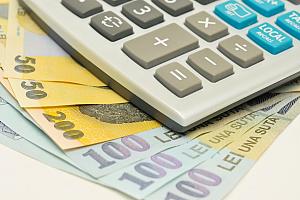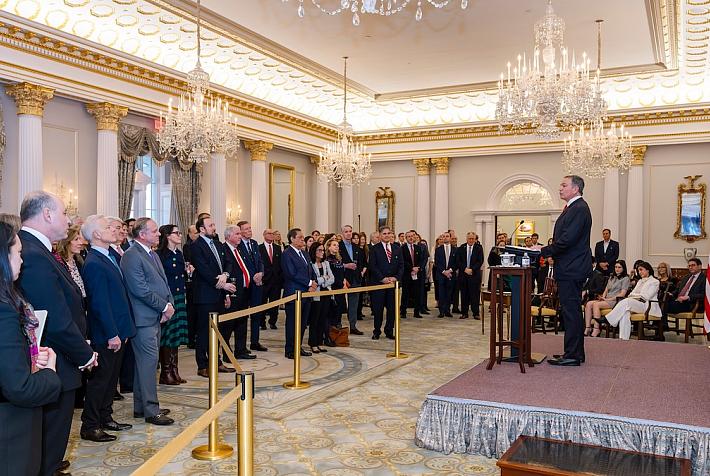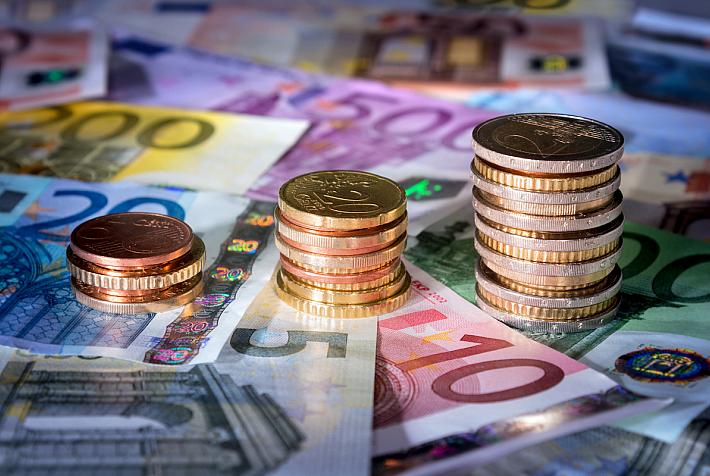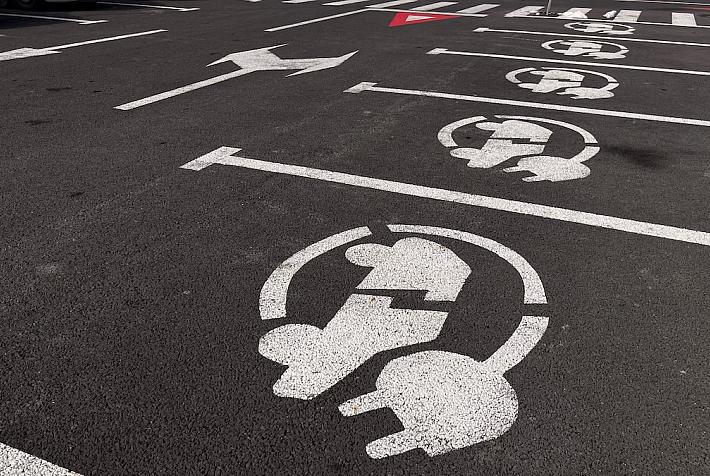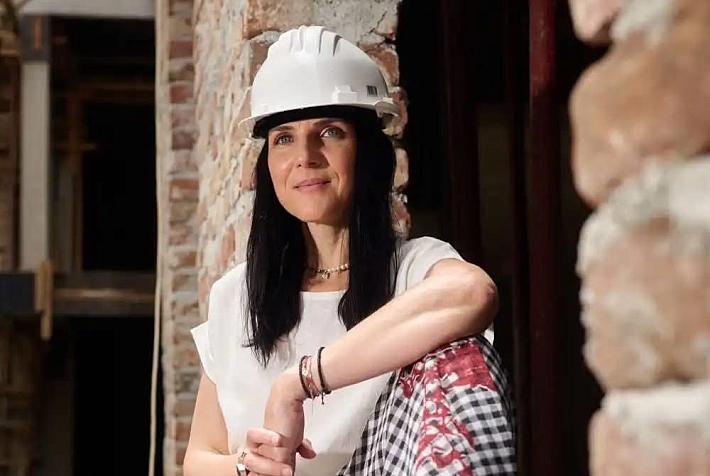Romania's currency sinks 2% amid political turmoil
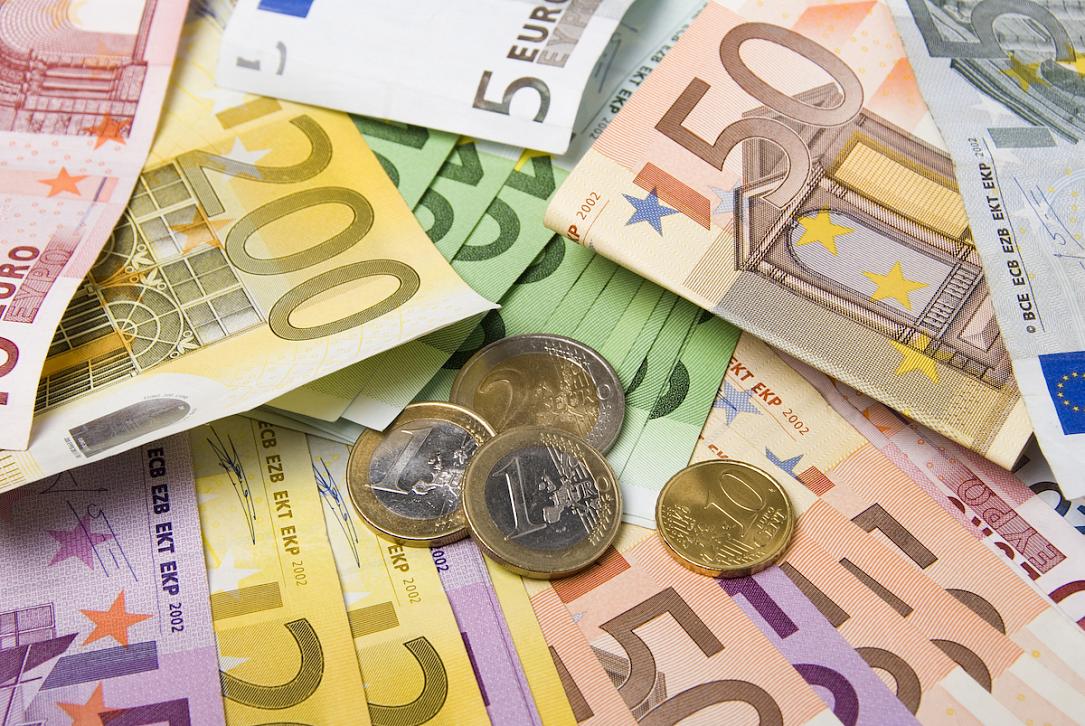
The National Bank of Romania (BNR) announced on May 6 a mid-day official exchange rate 1.2% d/d weaker for the local currency, which kept losing ground during the day to stabilize around RON 5.1 to euro or 2% down from just under RON 5.0 to euro seen in the past over a long period. The secondary market quotations for 10-year government bonds rose by almost 0.5 percentage points to 8.02/7.80 on May 6 over the two years since the first ballot of the presidential elections.
Market volatility will remain high over the coming two weeks before the May 18 final presidential ballot.
Fundamentally, the Romanian currency has strengthened in real terms over the past several years, and political instability may have been the only triggering factor.
"[Unless the Romanian currency RON recovers in the coming days], it means that this is the moment that the National Bank of Romania has been waiting for a long time to let the RON depreciate because the country's currency has strengthened in real terms, due to the fact that inflation in Romania has always been higher than that in developed countries [euro area] and yet the exchange rate has remained constant for 5-6 years," Dragoş Cabat, member of the CFA Board of Directors, co-founder of Cabat&Pah Investments, explained.
The pressure on the exchange rate is visibly prompted by foreign investors cashing their Romanian debt portfolios over concerns prompted by the possible win of isolationist presidential candidate George Simion – which also challenges the country's public financing in the longer term. Foreign investors currently hold some 52% of the stock of Romanian government bonds after the share rose sharply over the past five years of wide public deficits.
BNR kept the exchange rate steady on the first day after the May 4 presidential ballot, but the prime minister's resignation late on May 6 has further fueled investors' rising concerns about political stability, increasing the pressure.
BNR attracted liquidity from the market after capital inflows decreased and outflows increased significantly, which led to an increase in interest rates, BNR spokesperson Dan Suciu told Agerpres on May 6 after sources familiar with the developments reported BNR sold some EUR 2 billion to keep the exchange rate stable on May 5.
"Recently, an important change has occurred on the foreign exchange market. Capital inflows have decreased, and outflows have increased significantly. Consequently, in order to temper these movements, liquidity had to be attracted from the market, and interest rates increased. The NBR will seek an optimum for this situation," explained BNR's spokesperson Dan Suciu.
In the meantime, traders in the government debt interbank market reported massive sale orders.
"It wasn't as bad as it is now, not even during the pandemic. Everyone wants to exit! All foreign investors want to sell and run! The contribution of foreign investors is indispensable to Romania's economic growth. And they are leaving now," a bank treasurer told Economica.
The investors expect Romania's currency to sink by as much as 20% under a pessimistic scenario, while a "positive" outcome of the presidential elections on May 18 could restore stability on the country's forex market according to a JPMorgan research note quoted by Ziarul Financiar. JPMorgan considers two scenarios regarding the Romanian leu: a 3-5% depreciation or a 15-20% depreciation. However, the bank's analysts say that a different result in the second round of the presidential election or a change in Simion's rhetoric would alter these scenarios.
The isolationist candidate George Simion won a landslide win in the first round of the presidential elections on May 4, prompting expectations for a final win on May 18. His party, Alliance for the Union of Romanians (AUR), argues in its ruling strategy for gradually recovering, through fair compensation (nationalization), the country's strategic companies, such as OMV Petrom. Simion also pledged to appoint Calin Georgescu, the highly popular far-right politician with even more radical nationalist economic rhetoric.
(Photo: Breeze393/ Dreamstime)
iulian@romania-insider.com







